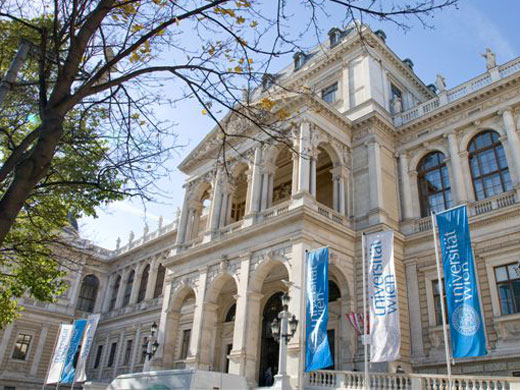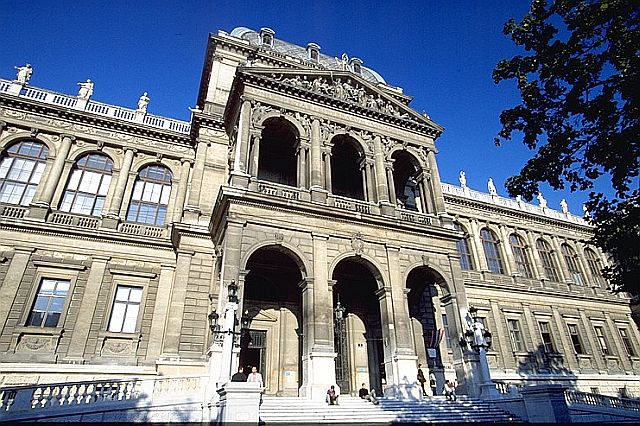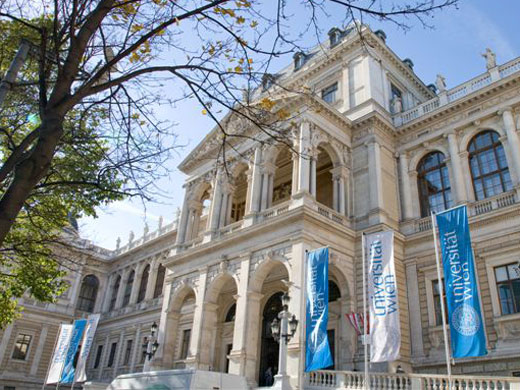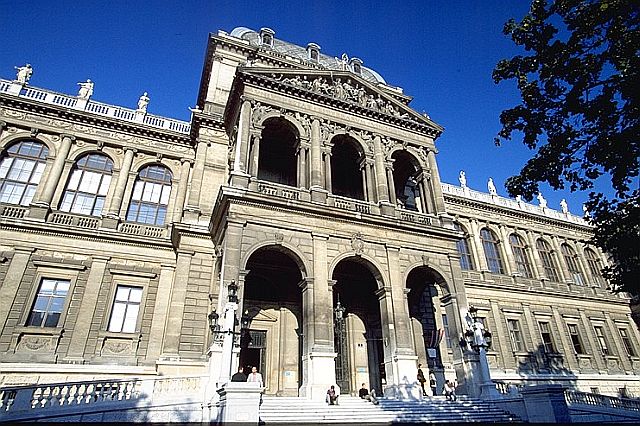Part 3: If I Could Turn Back The Hands of Time
“If I could turn,
turn back the hands of time…” (Kelly, 1998)
Previous Article: http://edukasi.kompasiana.com/2014/08/06/throw-your-applications-to-the-wind-pt-1-2-678390.html
If I really could turn back the time, I think I would like to allocate (much) more time in preparing my proposal (as well as preparing for the Quantitative GRE test, which I shall talk about later). For either scholarship or admission selection, I heard that the research proposal has a SVVIP status of importance, i.e. Super Very Very Important.
As I had been feeling safe with the papers I had downloaded and stored in a folder, the bitter reality sank in when I was starting to read the papers. First, I found out that some downloaded papers must be discarded. After I read the abstracts or skimming them a bit, I found out that they did not really contain the topic I wanted. I just realized that the title alone can be misleading. For example, although the paper’s title contained the word “Heuristics”, it did not mean that it discussed the types of heuristics that I would like to become the basis of my research proposal.
Another portion of the downloaded papers must be forgotten, too. The reason was simple, they seemed and sounded too difficult for me. If I had had more time, perhaps I would have got the motivation to delve into those papers and obtain useful ideas for my own proposal. But, alas, I was running out of time!
Moreover, at that time, I was too concentrated at looking for papers in the area that I had already comprehended quite well. instead of wandering a bit to the ‘unknown’ topics, I selected only papers that discussed topics within my comprehension. I should have taking inspiration or direction from the papers of other topics. It was a stupid mistake, yes, but it can happen to Anyone of Us (Gates, 2002).
Generally, it takes me about a week to have a basic understanding of a new topic. Therefore, it is highly suggested for all Master’s or Ph.D. scholarship applicants to start the paper reading as early as possible. Remember, (much) time is still needed to select ideas, develop the ideas, combine and/or revise the ideas to become our own authentic research proposal. And, of course, never forget that (much) time is again required to write the proposal into something appealing to the readers, i.e. both the Fulbright and university selection committee members.
In my proposal, I tried to convince readers about several things or issues, i.e.
1.The proposed problem IS a problem.
2.The problem has not been tackled much by other researchers; support this with adequate references.
3.The general methodology to solve the problem; state the steps and the purpose of each step.
4.The proposed method is worth to be done for a research.
I finished all requirements and sent it to AMINEF on April 11, 2013, which was 4 days before the deadline.
How did I feel after sending it? A great lady, whom I later met during the interview stage, described the feeling using very great analogy. She told me, “When we have submitted our application, it is just like we have thrown the ball to the opposite side. From then on, it would be their turn to, or not to, return the ball. Since we have done our part, there is really no point of regretting or fretting when the other party does not return the ball back to us. We have done our parts, anyway.”
*
Meanwhile, it was also around the Fulbright deadline when I came to realize that Professor Picture, for one reason or another, would never EVER reply my email. It was high time to move on, and say Bye, Bye, Bye (‘N Sync, 2000).
I was still determined to break into the selection stage of the Swiss Government Excellence Scholarship. Thus, I started the plan to email other Swiss professors. The candidates were, let’s just say, Professor Biscuit and Professor Pan.
One of Professor Biscuit’s research topic is applying metaheuristics to financial/economics problems. I downloaded his papers and did spend quite some time to really read them. However, no matter how hard I tried to understand his papers, I humbly realized that my background in financial/economics theories was next to none. Meanwhile, Professor Biscuit was a professor at Economics Department. Since I did not think I would be able to jump from Engineering to Economics at the Ph.D. level, I finally did not email Professor Biscuit at all.
A quite different story it was with Professor Pan. I read his papers and I did send him an email, which included similar contents to the one I wrote for Professor Picture previously. Despite of the similarities between those two emails, I did write an entirely new email for Professor Pan. It is my opinion that we should never use a “template” email, no matter how similar the core purpose of some emails is. A template-based email sounds cold, distant, and ingenuine. A template-based email might bring a bigger disaster, i.e. forgetting to change something from the template. For example, let’s say your template mentions “Scholarship ZZZ”, and you are supposed to change the ZZZ with the real name of the scholarship, but you forget to do so. Would it not be disastrous? To view it from another point of view, would you yourself like to receive a template-based email?
Oh, forgive me if I sound like preaching… you might say, please Papa Don’t Preach (Madonna, 1986).
Just a few days after sending the email to Professor Pan, he did reply! To my disappointment, however, he told me that at the moment he had got no positions left for Ph.D. students under his supervision. That officially endeavor to pursue the Swiss Government Excellence Scholarship. Being determined for not simply sitting and waiting for Fulbright, I moved on to Austria.
*
Whether it was wrong or right, again I was motivated to study in Austria because of its stunningly picturesque cities and campuses. Show pics or otherwise hoax? Well, here are the pics of Vienna…
[caption id="attachment_351626" align="aligncenter" width="620" caption="Vienna"][/caption]
[caption id="attachment_351627" align="aligncenter" width="630" caption="Vienna again"]

[caption id="attachment_351628" align="aligncenter" width="490" caption="last but not least, still... Vienna"]

and the University of Vienna (Universität Wien)…
[caption id="attachment_351629" align="aligncenter" width="520" caption="University of Vienna"]

[caption id="attachment_351630" align="aligncenter" width="640" caption="University of Vienna"]

As for the Austrian Government Scholarship, it also requires applicants to have obtained either university’s acceptance of professor’s approval. On the online registration form of University of Vienna, applicant was asked about the professor whom we would like to be our research supervisor. If I remember correctly, it was stated that it was optional for applicant to, or not to, contact the professor first.
Fear of rejection, to be very honest, I did not contact the professor and applied directly to the university. I did include the professor’s papers in my Research Proposal, though, and mention his name on the online application form. I hoped, somehow, it would show my interest and understanding upon his research topic.
The progress felt much easier and faster than when I was preparing for the Fulbright application. I suppose it was because the documents have been ready, such as transcripts, certificates of degree, TOEFL score, etc. in both hard copies and scanned versions. In order to make further search easier, do remind to collect and put the documents in a fixed location (for hard copies) and in an appropriately-named folder in computer (for scanned versions).
Mainly for the reasons of avoiding confusions and redundancies, avoid naming files with nondescript names such as ‘IMG_001’ or ‘Scan_010414’. Such file names would require us to check the content before using or sending it. Much worse, we might wrongly attach a file just because of its nondescript names. It is an equally terrible idea to name files/folders with names such as ‘Final Version”, then ‘This Is The Better Revision’, afterwards ‘This Is Surely The Very Final Version’, etc.
Sending the online application and all documents to Universität Wien on June 29, 2013, practically ended this stage of ‘throwing’ my applications to whichever ‘wind’ that blows favorably. Which wind blew back good news? I shall write it on the next article.
Next:
“You can see my heart, beating…
You can see it through my chest.
Said I’m terrified, but I’m not leaving…
I know that I must pass this test.
So, just pull the trigger…” (Rihanna, 2009)
Follow Instagram @kompasianacom juga Tiktok @kompasiana biar nggak ketinggalan event seru komunitas dan tips dapat cuan dari Kompasiana
Baca juga cerita inspiratif langsung dari smartphone kamu dengan bergabung di WhatsApp Channel Kompasiana di SINI











